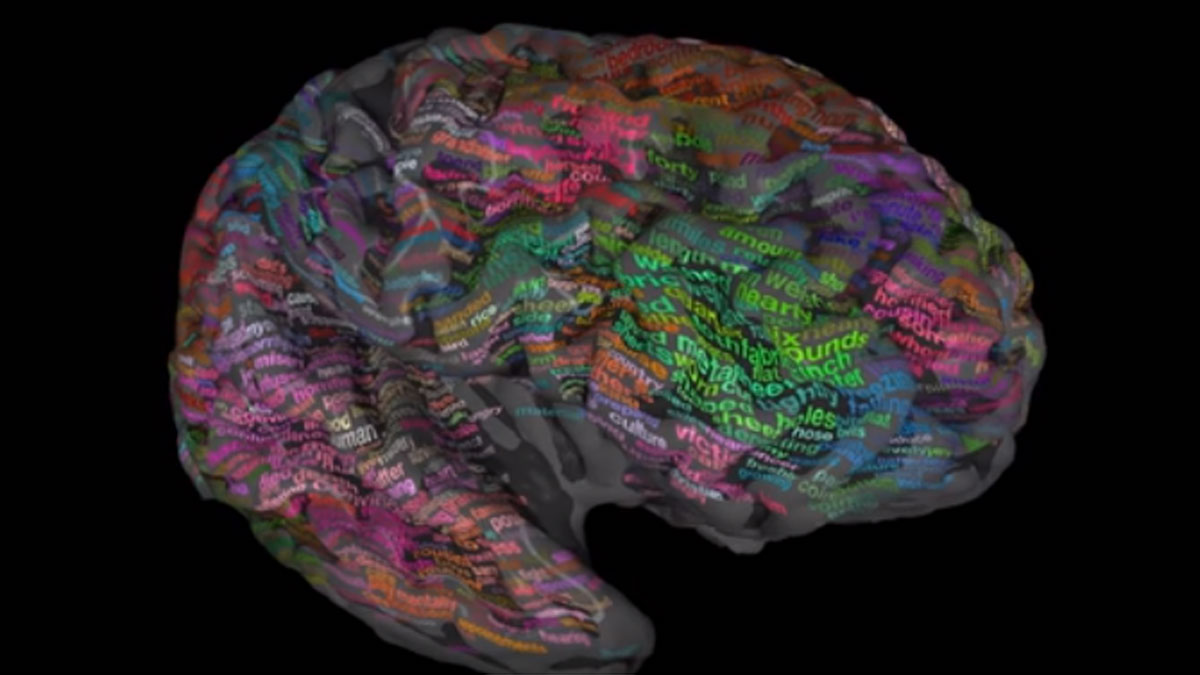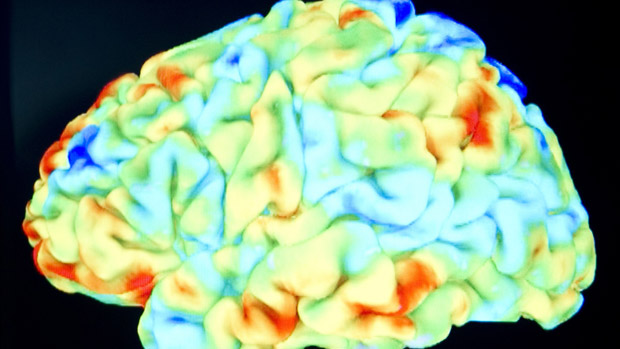Aducanumab: what scientists are saying about new Alzheimer’s drug
US regulator’s approval comes in the wake of significant scientific debate over treatment’s effectiveness

A free daily email with the biggest news stories of the day – and the best features from TheWeek.com
You are now subscribed
Your newsletter sign-up was successful
US regulators have approved the first new treatment for Alzheimer’s disease in nearly 20 years.
Aducanumab, which was developed by the American biotech company Biogen, differs from other Alzheimer’s drugs in that it tackles the underlying cause of the disease rather than merely the symptoms.
The innovative treatment targets a protein called amyloid. This forms clumps of plaque in the brain, which is believed to be a cause of the disease.
The Week
Escape your echo chamber. Get the facts behind the news, plus analysis from multiple perspectives.

Sign up for The Week's Free Newsletters
From our morning news briefing to a weekly Good News Newsletter, get the best of The Week delivered directly to your inbox.
From our morning news briefing to a weekly Good News Newsletter, get the best of The Week delivered directly to your inbox.
But the approval of the drug by US regulators is highly controversial, provoking “a rancorous scientific debate”, says the Financial Times. Many scientists have hailed the arrival of the new therapy, but there is widespread scepticism over its benefits and effectiveness too.
A ‘historic moment’
The US Food and Drug Administration (FDA) acknowledged the controversy in a statement announcing its decision to approve the drug. “We are well-aware of the attention surrounding this approval,” said Patrizia Cavazzoni, director of the FDA’s Centre for Drug Evaluation and Research.
She noted there were “residual uncertainties” over the clinical benefit of the drug, but said the agency had concluded aducanumab was “reasonably likely” to help patients, with the benefits of the drug outweighing any potential risks.
A free daily email with the biggest news stories of the day – and the best features from TheWeek.com
Biogen chief executive Michel Vounatsos called the approval a “historic moment” and said it was “the culmination of more than a decade of groundbreaking research in the complex field of Alzheimer’s disease”.
Indeed, in March 2019, Biogen halted two late-stage international trials of the drug involving around 3,000 patients when analysis by an independent committee found it was not any better at “slowing the deterioration of memory and thinking problems” than “a dummy drug” reports the BBC.
But later that year, Biogen said a new analysis of a larger trial data set showed the drug worked when given in higher doses.
The inconsistent trial results are one reason why there has been a clear note of caution from many scientists, even from those who welcome the FDA's approval. Indeed, some have warned the drug is likely to have limited benefits and be suitable for only a small number of patients.
“While I am pleased that aducanumab has received approval, we have to be clear that, at best, this is a drug with marginal benefit which will help only very carefully selected patients,” said John Hardy, professor of neuroscience at University College London.
And while Professor Bart De Strooper, director of the UK Dementia Research Institute, called the decision to approve aducanumab “a hugely significant milestone”, he cautioned there were “still many barriers to overcome, including cost, eligibility and clinicians’ enthusiasm to prescribe a medicine whose effects are far from certain”, Dementia Researcher reports.
Despite the caution, there are hopes that the approval of aducanumab will renew interest in drug therapies for Alzheimer’s and spur on new research.
“History has shown us that approvals of the first drug in a new category invigorate the field,” Maria Carrillo, chief science officer at the non-profit Alzheimer’s Association, said in a statement, while Richard Hodes, director of the US National Institute on Aging, said the approval “provides, certainly, reason to continue” research into amyloid plaque on the brain as a significant contributing factor to the development of the disease, Science magazine reports.
“This is not a miracle drug, nor a cure for Alzheimer’s but it is the first treatment which tackles the destructive mechanism in the brain that drives the destruction of neurons,” writes the BBC’s health editor Fergus Walsh. “And that makes this a landmark moment.”
A ‘grave error’
On the other side of the debate, some scientists have significant objections to the approval of the drug, citing insufficient evidence and concerns over the way the approval process had been accelerated.
Professor Robert Howard, professor of old age psychiatry at UCL, condemned the approval in the strongest terms, claiming it “represents a grave error that will have only negative impact on patients and their families and that could derail the ongoing search for meaningful dementia treatments for a decade”, The Guardian reports.
He said the FDA had “sidestepped” data from the 2019 clinical trials, which “indicate the drug probably doesn’t work”.
Joseph Ross, an expert in FDA regulatory policy at the Yale School of Medicine, said the approval would have “monstrous ramifications for the FDA and our health care system in general”.
Ross told Science magazine it was “unprecedented” for a drug to be switched from the standard approval process to an “accelerated pathway”, which allows the FDA to approve medicines for illnesses that have few treatment options, even if the evidence of their effectiveness is inconclusive. He warned insurance providers and patients will now be footing the costs of an “unproven” therapy.
Biogen will need to carry out a large, confirmatory trial to determine whether the drug has a clinical benefit, a process that will take years, says the FT. But in the meantime, it will still be allowed to market and sell the drug.
Sorcha Bradley is a writer at The Week and a regular on “The Week Unwrapped” podcast. She worked at The Week magazine for a year and a half before taking up her current role with the digital team, where she mostly covers UK current affairs and politics. Before joining The Week, Sorcha worked at slow-news start-up Tortoise Media. She has also written for Sky News, The Sunday Times, the London Evening Standard and Grazia magazine, among other publications. She has a master’s in newspaper journalism from City, University of London, where she specialised in political journalism.
-
 Local elections 2026: where are they and who is expected to win?
Local elections 2026: where are they and who is expected to win?The Explainer Labour is braced for heavy losses and U-turn on postponing some council elections hasn’t helped the party’s prospects
-
 6 of the world’s most accessible destinations
6 of the world’s most accessible destinationsThe Week Recommends Experience all of Berlin, Singapore and Sydney
-
 How the FCC’s ‘equal time’ rule works
How the FCC’s ‘equal time’ rule worksIn the Spotlight The law is at the heart of the Colbert-CBS conflict
-
 Lecanemab: the Alzheimer’s drug that could herald a cure
Lecanemab: the Alzheimer’s drug that could herald a cureSpeed Read Treatment slowed memory decline by 27% over 18 months but there are concerns over safety
-
 Barbara Windsor’s husband reveals her Alzheimer’s battle
Barbara Windsor’s husband reveals her Alzheimer’s battleSpeed Read Deteriorating health has left 80-year-old former Eastenders star in ‘continual confusion’
-
 Busy roads could be linked to dementia risk, researchers say
Busy roads could be linked to dementia risk, researchers saySpeed Read Major study finds people living close to heavy traffic are more likely to develop the disease
-
 Alzheimer's drug offers 'tantalising' hope for sufferers
Alzheimer's drug offers 'tantalising' hope for sufferersSpeed Read New antibody drug aducanumab could be prescribed as a preventative medicine in the future, say scientists
-
 Alzheimer's risk linked to hayfever and sleeping pills
Alzheimer's risk linked to hayfever and sleeping pillsSpeed Read Certain over-the-counter anticholinergic drugs raise risk of developing dementia, finds new study
-
 How old is your brain? Take the dementia test
How old is your brain? Take the dementia testIn Depth Dementia has overtaken heart disease as the leading cause of death in England and Wales
-
 Alzheimer's: test breakthrough raises hopes
Alzheimer's: test breakthrough raises hopesSpeed Read Scientists develop new test that can predict onset of Alzheimer's with 87% accuracy
-
 Dame Judi: Fish oil tablets help me remember my lines
Dame Judi: Fish oil tablets help me remember my linesSpeed Read The 78-year-old Skyfall star gives a brand of memory pills the kind of endorsement money can't buy